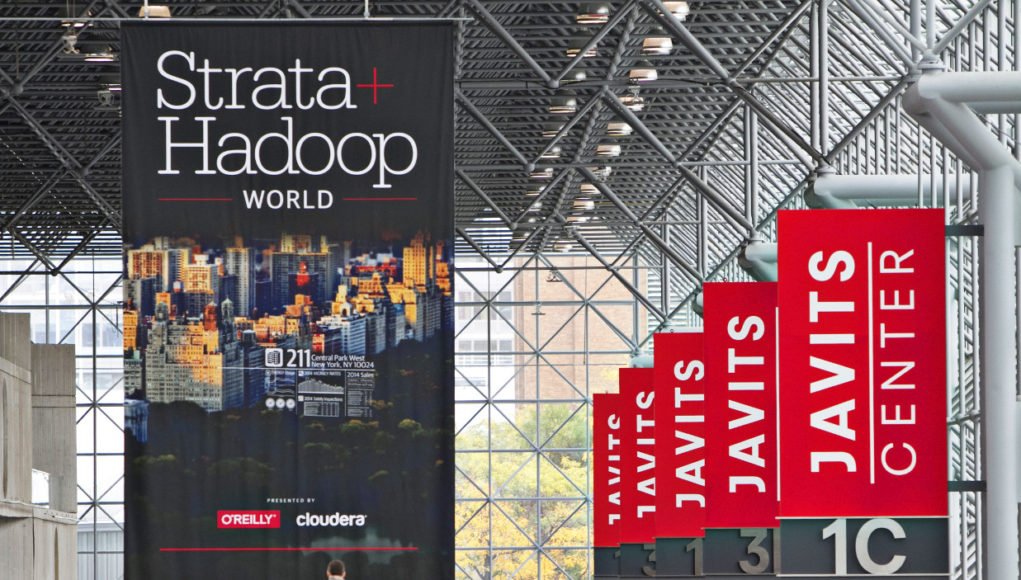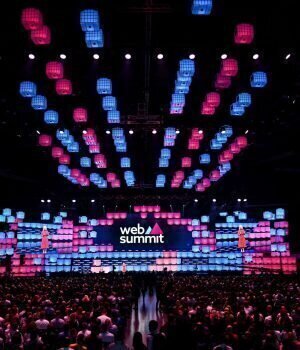Dates: September 25-28, 2017 | Register here
Prices: starting from USD 895,-
Location: New York, The United States
Strata Data Conference 2017: Shape the future of business and technology
Data is driving business transformation. Join Strata to turn algorithms into an advantage.
For those who know how to turn algorithms into an advantage, data delivers insight, efficiency, and business value.
Strata is a unique opportunity to tap into the leading minds in technology and network with thousands of data scientists, engineers, analysts, and business managers.
Conference topics include:
- AI
- Big data & the Cloud
- Data engineering
- Data-driven business
- Data science
- Enterprise adoption
- Hadoop
- Machine Learning
- Real-time apps
- Security
- Sensors & IoT
- Spark & beyond
- Stream processing
- Visualization & UX
Where business is going—and how to get there first
New programs: Strata Business Summit covers business strategy, case studies, and executive briefings on key topics such as: AI, predictive analytics, security, and cloud strategy. For finance executives, Findata Day is a deep dive into the disruption in finance—and how to turn algorithms into advantage.
Strata Training Courses
Immerse yourself in two days of in-depth education on critical topics.
Each training course takes place September 25-26 and is limited in size to maintain a high level of learning and instructor interaction.
Machine learning with TensorFlow
Robert Schroll demonstrates TensorFlow’s capabilities through its Python interface and explores TFLearn, a high-level deep learning library built on TensorFlow.
Join in to learn how to use TFLearn and TensorFlow to build machine-learning models on real-world data.
What you’ll learn, and how you can apply it
- Understand TensorFlow’s capabilities
- Explore TFLearn, a high-level deep learning library built on TensorFlow
Robert Schroll demonstrates TensorFlow’s capabilities through its Python interface and explores TFLearn, a high-level deep learning library built on TensorFlow.
The TensorFlow library allows the use of data flow graphs for numerical computations with automatic parallelization across several CPUs or GPUs.
This architecture makes it ideal for implementing neural networks and other machine-learning algorithms.
Join in to learn how to use TFLearn and TensorFlow to build machine-learning models on real-world data.
Real-time systems with Spark Streaming and Kafka
To handle real-time big data, you need to solve two difficult problems: how do you ingest that much data and how will you process that much data?
Jesse Anderson explores the latest real-time frameworks (both open source and managed cloud services), discusses the leading cloud providers, and explains how to choose the right one for your company.
Focusing on Apache Kafka and Apache Spark, Jesse also demonstrates how to ingest data, process it, analyze it, and display it in real time with a dashboard.
What you’ll learn, and how you can apply it
- Learn how to how to ingest data, process it, analyze it, and display it in real time with a dashboard with Apache Kafka and Apache Spark
Cloudera big data architecture workshop
This training brings together technical contributors in a group setting to design and architect solutions to a challenging business problem.
You’ll explore big data application architecture concepts in general and then apply them to the design of a challenging system.
What you’ll learn, and how you can apply it
- Understand and work with big data application architecture concepts
Apache Spark for machine learning and data science
In this training course, you’ll learn how to use Apache Spark to perform exploratory data analysis (EDA), develop machine learning pipelines, and use the APIs and algorithms available in the Spark MLlib DataFrames API.
You’ll also cover parallelizing machine learning algorithms at a conceptual level.
What you’ll learn, and how you can apply it
- Learn how to perform machine learning on Spark
- Explore the algorithms supported by the Spark MLlib APIs
This training is for you because you’re a software developer, data analyst, data engineer, or data scientist who wants to use Apache Spark for machine learning and data science.
The workshop takes a pragmatic approach, with a focus on using Apache Spark for data analysis and building models using MLlib, while limiting the time spent on machine learning theory and the internal workings of Spark.
You’ll work through examples using public datasets to learn how to apply Apache Spark to help you iterate faster and develop models on massive datasets and how to use familiar Python libraries with Spark’s distributed and scalable engine.
You’ll leave with the tools and knowledge you need to get started using Spark for practical data analysis tasks and machine learning problems, as well as a firm understanding of DataFrames, the DataFrames MLlib API, and related documentation.
Topics covered include:
- Extract, transform, load (ETL) and exploratory data analysis (EDA)
- DataFrames
- Feature extraction and transformation using Spark MLlib
- Spark ML Pipelines: Transformers and estimators
- Cross-validation
- Model parallel versus data parallel
- Reusing existing code with Spark
- Tokenizer, Bucketizer, OneHotEncoder, Normalizer, HashingTF, IDF, StandardScaler, VectorAssembler, StringIndexer, PolynomialExpansion
- Clustering, classification, and regression
- K-means, logistic regression, decision trees, and random forests
- Evaluation metrics
For more opportunities, check our opportunities sections and subscribe to our weekly newsletters.






